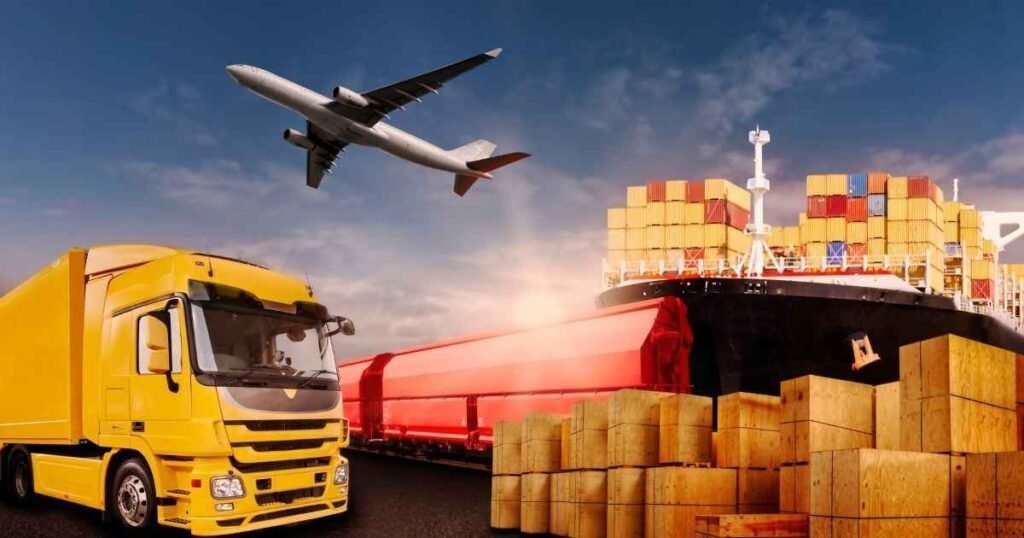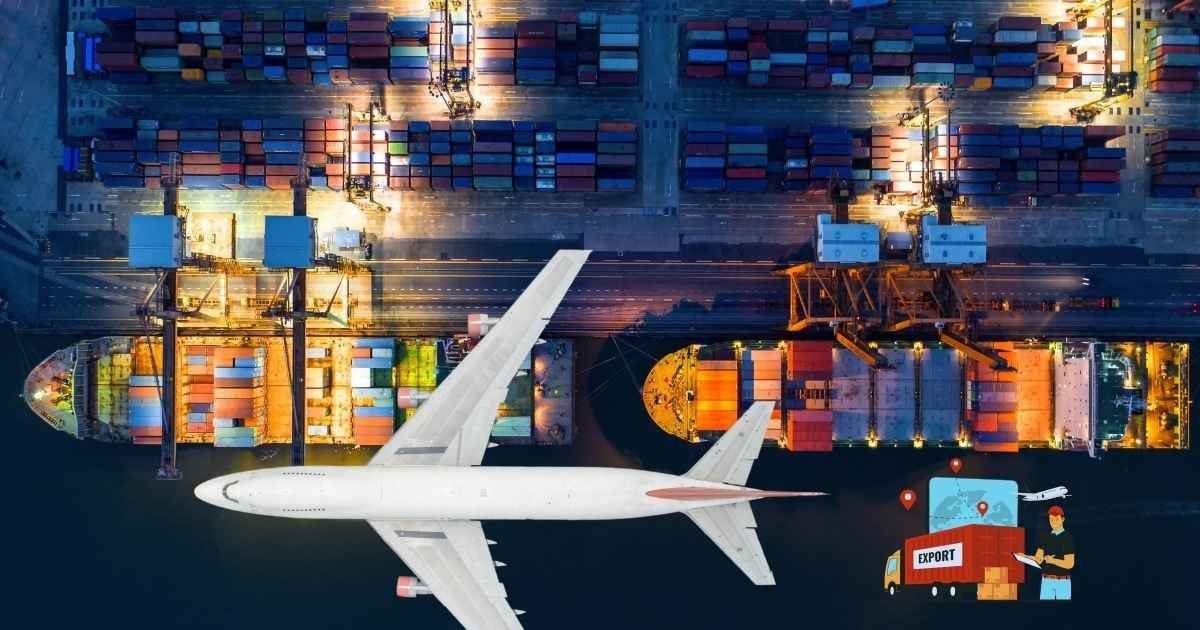Introduction
In today’s globalized economy, international shipping has become an essential part of business operations. Whether you are an e-commerce company looking to expand globally or a manufacturer sourcing materials from abroad, mastering international shipping is crucial to your success. It’s not just about moving goods from one country to another— it involves navigating complex regulations, ensuring timely deliveries, managing costs, and understanding logistics.
In this comprehensive guide, we’ll walk you through everything you need to know about international shipping—from understanding the process, choosing the right shipping services, and mitigating risks, to optimizing costs and ensuring customer satisfaction. We’ll also include a step-by-step guide to help you plan your shipping strategy effectively.
By the end of this article, you’ll have the tools and knowledge to take your business global with confidence.
What is International Shipping?

International shipping refers to the process of transporting goods from one country to another. This can be through various modes of transportation, including air, sea, or land. Whether you are shipping large containers of goods or small packages, international shipping plays a key role in global trade.
However, international shipping is more than just sending products across borders. It involves complying with various customs regulations, managing tariffs and taxes, coordinating with freight forwarders, and ensuring the safe and timely delivery of goods.
1. Importance of International Shipping for Businesses
Expanding your business beyond domestic borders opens up new markets, increases sales potential, and strengthens your global presence. International shipping allows businesses to reach new customers, source cheaper raw materials, and build partnerships with global suppliers.
Without a proper international shipping strategy, businesses risk delays, higher costs, and regulatory issues that can affect their bottom line. Therefore, it’s essential to invest time and effort in understanding and optimizing your international shipping processes.
2. Common Challenges in International Shipping
While international shipping offers significant opportunities, it also presents a set of challenges, such as:
- Customs regulations: Different countries have varying import/export regulations, which can delay shipments if not properly managed.
- Shipping costs: International shipping can be expensive, with costs fluctuating based on factors like distance, mode of transport, and package weight.
- Delivery times: Long transit times can affect customer satisfaction, especially for e-commerce businesses.
- Risk of damage or loss: Goods can be damaged or lost during transit, especially in long-distance international shipments.
With proper planning and expertise, these challenges can be mitigated, making international shipping a smooth process.
Comprehensive Guide to International Shipping: Best Carriers, Rates, and Delivery Options
| Shipping Provider | Estimated Delivery Time | Service Coverage | Pricing | Tracking Options | Shipping Methods | Customs Handling | Extra Benefits |
|---|---|---|---|---|---|---|---|
| DHL Express | 1-3 Business Days | 220+ Countries | Based on weight | Available | Air, Ground | Yes | Fast door-to-door delivery, Priority service |
| FedEx | 1-5 Business Days | 200+ Countries | Based on distance | Available | Air, Ground | Yes | Global express shipping, Live tracking |
| UPS | 2-7 Business Days | 180+ Countries | Depends on region | Available | Air, Ground | Yes | Expedited shipping, 24/7 customer support |
| USPS | 3-7 Business Days | 190+ Countries | Affordable | Available | Air, Ground | Yes | Cost-effective, Priority international service |
| TNT | 1-4 Business Days | 200+ Countries | Varies | Available | Air, Ground | Yes | Urgent deliveries, Time-sensitive options |
| Canada Post | 5-10 Business Days | 190+ Countries | Competitive | Available | Air, Ground | Yes | Budget-friendly, Reliable tracked service |
| Royal Mail | 5-7 Business Days | 180+ Countries | Cost-effective | Available | Air, Ground | Yes | Secure shipping, Consistent service |
| Singapore Post | 3-7 Business Days | 130+ Countries | Varies | Available | Air, Ground | Yes | Express shipping, Trusted worldwide delivery |
Step-by-Step Guide to International Shipping
Prepare the Goods for Shipment
The first step in international shipping is preparing your goods for transit. This includes:
- Packaging: Ensure that your goods are properly packaged to withstand long distances and potential rough handling during transit. Consider using durable materials, especially for fragile items.
- Labeling: Clearly label each package with the recipient’s address, including any required shipping and handling instructions. Proper labeling is crucial for avoiding customs issues and ensuring smooth delivery.
Choose the Right Shipping Service
Next, you’ll need to decide on the best shipping method based on your business needs. International shipping offers several options, including:
- Air Freight: Ideal for high-value, time-sensitive goods. While it’s more expensive, air freight ensures faster delivery.
- Ocean Freight: Best for bulky or heavy items. Though slower, ocean freight is more cost-effective for large shipments.
- Courier Services: Services like DHL, FedEx, and UPS are ideal for smaller parcels and offer reliable door-to-door delivery.
Your choice will depend on factors like cost, delivery speed, and the nature of the goods being shipped.
Understand Customs Regulations
One of the most critical aspects of international shipping is understanding and complying with customs regulations. Each country has specific rules regarding the import and export of goods, including:
- Customs declarations: You’ll need to complete a customs declaration form that provides details about the contents of your shipment, including the value and purpose of the goods.
- Duties and taxes: Import duties, taxes, and tariffs are often imposed by the destination country. Be sure to understand these costs beforehand to avoid unexpected fees.
Working with a reliable freight forwarder or customs broker can help ensure compliance with these regulations, minimizing the risk of delays.
Calculate Shipping Costs
Shipping costs can vary significantly based on factors such as package weight, dimensions, shipping distance, and mode of transport. It’s important to consider all possible fees, including:
- Shipping rates: Depending on whether you use air or ocean freight, shipping rates can fluctuate.
- Fuel surcharges: Some shipping carriers add fuel surcharges, especially for long-distance shipments.
- Customs duties and taxes: Be sure to factor in any taxes or tariffs that apply to your goods when they arrive at their destination.
To help manage costs, consider consolidating shipments when possible or using a third-party logistics provider (3PL) to negotiate lower rates.
Track Your Shipment
Once your goods are on their way, it’s important to monitor their progress. Most shipping providers offer tracking services, allowing you to keep an eye on the shipment’s status and estimated delivery time. Tracking also helps in managing customer expectations and addressing any potential delays.
Ensure Safe Delivery
The final step in the international shipping process is ensuring that the goods reach their destination safely and on time. Working with reliable carriers and providing clear delivery instructions can help minimize the risk of damage, delays, or lost packages.
Must Read : Barn Inc. T3NUQCU6O4HXEBU Sacramento CA US
Key Considerations When Choosing an International Shipping Partner
Selecting the right international shipping partner is crucial for smooth global operations. Here are key factors to consider:
1. Experience and Reputation: Look for a shipping provider with a proven track record in handling international shipping. They should have experience managing customs regulations, dealing with unexpected issues, and delivering goods efficiently across borders. Positive customer reviews and a strong industry reputation are good indicators of reliability.
2. Range of Services: Choose a provider that offers a comprehensive range of international shipping services, including air freight, ocean freight, and courier services. This ensures that you can select the best option for each shipment based on cost, speed, and the type of goods being shipped.
3. Customer Support: Good customer support is essential in international shipping. Look for a provider that offers responsive support, especially in case of customs issues, delayed shipments, or lost packages. A dedicated customer service team can make a significant difference in addressing challenges quickly.
4. Costs and Rates: While it’s important to choose a provider that offers competitive rates, don’t sacrifice quality for cost. Look for a shipping partner that offers a balance between affordable pricing and reliable service.
Optimizing International Shipping for Cost and Efficiency
Efficient international shipping is essential for businesses that want to reduce logistics costs and improve operational performance. One strategy to achieve this is by consolidating shipments. This practice involves combining multiple smaller shipments into a single, larger one, which can lower per-unit shipping costs and improve overall efficiency. Another way to optimize international shipping is to negotiate rates with shipping carriers. If your business frequently ships goods internationally, many carriers are open to offering better pricing for long-term contracts or bulk shipments, which can lower your overall expenses. Additionally, using shipment tracking and management tools can provide real-time visibility, helping businesses address any delivery issues quickly.
These technologies also offer valuable insights into future shipments, including cost analysis, delivery times, and carrier performance. Finally, collaborating with a third-party logistics (3PL) provider can further enhance your shipping process. 3PL companies have access to global shipping networks, offer competitive international shipping rates, and can handle everything from packaging and storage to transportation and customs clearance. By outsourcing these logistics tasks, businesses can streamline their international shipping operations, ensuring faster deliveries and more efficient supply chains.
Common Mistakes in International Shipping and How to Avoid Them
Even seasoned businesses can make mistakes when it comes to international shipping. Here are some common pitfalls and how you can avoid them:
1. Inaccurate Documentation: Incorrect or incomplete customs documentation can lead to shipment delays or even fines. Ensure that all required forms, including customs declarations and commercial invoices, are filled out correctly and accurately reflect the contents of the shipment.
2. Underestimating Shipping Costs: Many businesses underestimate the true cost of international shipping, forgetting to account for customs duties, tariffs, and surcharges. Use shipping calculators to estimate costs accurately, and always include customs fees in your pricing strategy.
3. Not Considering Insurance: International shipments are more prone to damage or loss, especially when traveling long distances or across different modes of transport. Always consider shipping insurance to protect your goods and minimize financial loss in case of damage.
International Shipping FAQs
1. What is international shipping?
International shipping refers to the process of transporting goods between countries using air, sea, or land transportation.
2. What is the best way to ship internationally?
The best method depends on the size, weight, and urgency of your shipment. Air freight is ideal for fast deliveries, while ocean freight is better for larger, less time-sensitive shipments.
3. How are international shipping costs calculated?
Costs are based on several factors, including the weight and dimensions of the package, the distance between the sender and recipient, and customs duties.
4. What is a customs broker, and do I need one?
A customs broker assists with the customs clearance process, ensuring your goods comply with all regulations. It’s recommended for businesses shipping large volumes or high-value items.
5. How long does international shipping take?
The transit time for international shipping depends on the shipping method and destination. Air freight typically takes 2–7 days, while ocean freight can take 20–45 days.
6. What documents are required for international shipping?
Common documents include a commercial invoice, packing list, and customs declaration. Additional paperwork may be required depending on the destination country.
7. What is a freight forwarder?
A freight forwarder is a third-party agent who manages logistics for businesses, including transportation, customs clearance, and warehousing.
8. How can I reduce international shipping costs?
To reduce costs, consolidate shipments, negotiate with carriers, and work with a third-party logistics (3PL) provider for better rates and supply chain optimization.
9. What happens if my international shipment is delayed?
Shipment delays can occur due to customs issues, weather conditions, or carrier problems. Contact your shipping provider for tracking updates and work with your customs broker to resolve any clearance delays.
10. Is international shipping safe?
Yes, with proper packaging and reliable shipping partners, international shipping is safe. However, it’s always advisable to purchase shipping insurance to protect against damage or loss.
Conclusion
International shipping is a vital component of global business operations. Whether you’re a small business owner expanding your market or a manufacturer sourcing raw materials, a well-optimized international shipping strategy is key to success.
By understanding the shipping process, choosing reliable partners, and staying compliant with customs regulations, you can unlock new opportunities for growth while ensuring a smooth shipping experience. Remember, investing in the right tools and resources will pay off in terms of efficiency, cost savings, and customer satisfaction.
Are you ready to take your business global? Start optimizing your international shipping strategy today and make your mark on the world!








